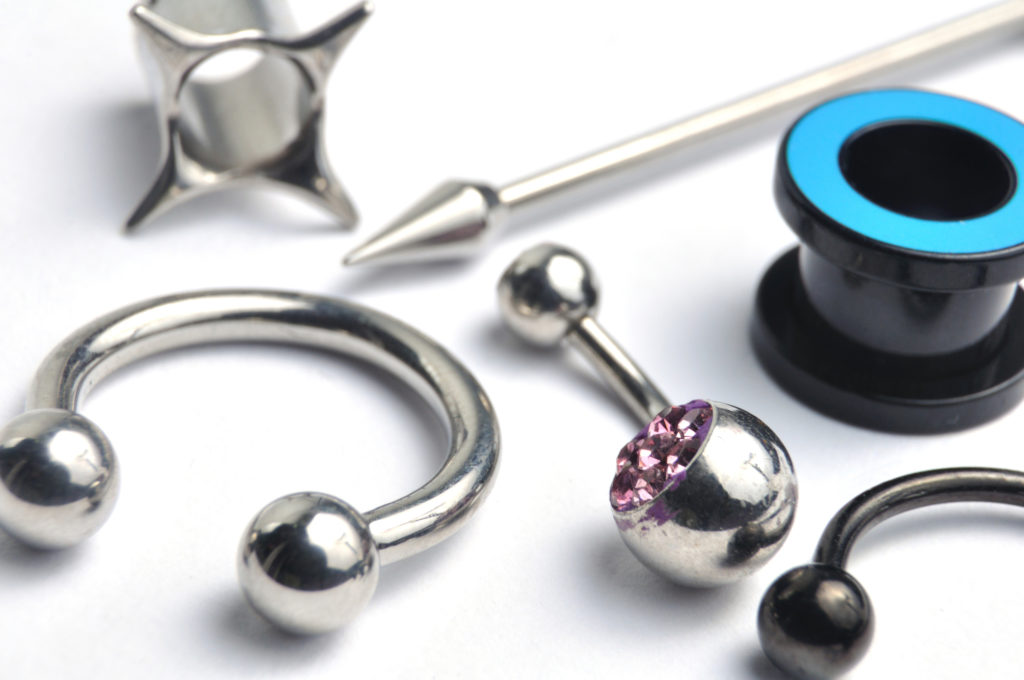The act of piercing the body (and usually inserting adornments through the resulting hole) is not new to mankind, but a practice that has continued since ancient times. The Bible mentions piercings in a lot more than just one verse, including in the books of Ezekiel, 1 Corinthians, 1 Timothy and Isaiah.
Piercing is mentioned as a custom that not everyone in Biblical times practiced. Groups that were ‘foreign’ to the people of Biblical times would often adorn their necks with necklaces, or their ears with earrings.
In Biblical times, piercings were looked upon as something that only outsiders did. At the time, the faithful (and the priests) would often be dressed up in the most humble of outfits – women kept their hair braided, often hidden, while men would grow their beards.
The Bible does not expressly forbid the act of piercing as a means of adornment.
The Bible mentions scarification, the cutting of the skin, separately from piercings and tattoos. This was an act that people would only indulge in when they were in mourning – and this is something the Bible expressly forbids. Cutting the skin, out of spite or fear or anger, is seen as a way of harming the body as God’s temple.
Today, even priests and their congregation dress up differently. It’s not unusual to see people with piercings, from younger members of the faith to much older ones.
Contents
Are Piercings a Sin?
The Bible does not outright mention the act of piercing (or wearing piercings) a sin – or necessarily against God’s wishes.
In Biblical times, certain tribes were known for their piercings; at worst, it was considered unusual – and priests and believers of the time dressed up in humble clothing, usually without.
This does not mean that nobody in the Bible’s time had piercings. One reference that we can find in Ezekiel references a nose ring, earrings and a ‘beautiful crown’ in a positive light.
head.” Ezekiel 16:12
Piercings were certainly not common, but there is evidence in the Bible to support the idea that the faithful could still continue their faith in God (and have piercings, however unusual for the time). Priests and people did not have piercings, though slaves and people from other tribes who sometimes converted to our faith might.
Leviticus says, though, that people shall not make cuts the body or tattoo. This passage is generally believed to refer to the practice of tattooing and cutting when people were in mourning – which was not an acceptable, Biblical custom but instead practiced by other tribes.
The Bible tells us that it is not okay to harm the body out of strong emotion, but this does not refer to the modern practice of piercings or tattoos.
Are Piercings Wrong?
Piercings are not ‘wrong’ according to most of Biblical texts, even though piercings were considered an unusual sight in the Bible’s time.
The Bible tells us in 1 Corinthians that our bodies are to be a temple of the Holy Spirit. Our bodies and minds are made to glorify the Lord in everything that we do.
If you can say that your piercings and tattoos have a negative impact on your faith, then they are not the best thing for you personally. If you can say that your piercings or tattoos are a positive thing (and do not harm your body), then everything you do is still to the glory of God.
Further, Corinthians reminds us that everything we do, eat or drink should be to the glory of God.
Will We Go to Heaven with Our Piercings?
No, piercings are unlikely to be one of the things that we take with us on our Heavenly journey.
Piercings and other material, Earthly objects do not go together with us to the next life with Christ. Death is final, and when Heaven opens up to the faithful, all Earthly things are said to lose all meaning.
A specific, important section of the Bible that speaks of this can be found in Isaiah, where it says that on the final day, the Lord will take away ‘the finery of the anklets, the headbands and the crescents’. It goes on to mention piercings, such as nose rings – and clothing, like fine mantles.
Remember that these are all material things, like houses or cars, which we will have no further need for in the Kingdom of Heaven.
crescents; the pendants, the bracelets, and the scarves; the headdresses, the armlets, the sashes, the perfume boxes, and the amulets; the signet rings and nose rings; the festal robes, the mantles, the cloaks, and the handbags;” Isaiah 3:18-23

When we are within the Kingdom of the Lord, our Earthly possessions will no longer be of any importance (and will not matter to us one bit!).
Are Piercings Against the Bible?
The Bible never expressly forbids the practice of piercings or tattoos, but makes it clear that cutting and tattooing when in mourning (thus, for the dead and those who have passed) is not acceptable to the Lord. This must be taken in the context of the time, when self-harm was one way for people to grieve – and while some tribes would practice this rite, it was forbidden for Christians to do.
Things that harm the body are not in line with Christ’s plan. Can you, personally, say that everything you do is to the Lord’s glory?
To understand the context of Biblical times, another verse that points out how people of the time might have been dressed can be found in 1 Timothy. People were encouraged to dress modestly, as believers and priests of the time did. The Bible seems to agree that there is a different ‘dress code’ in most parts of the world than a few thousand years ago!
In Exodus, we find another reference to earrings – when these objects made of gold are given as an offering to the Lord. This example shows us that, indeed, piercings were around in the times of the Bible – and they were not always seen as a bad thing, but could have even been a sign of wealth.
and earrings and signet rings and armlets, all sorts of gold objects, every man dedicating an offering of gold to the LORD” Exodus 35:22
Will Someone Go to Hell for Piercings?
No, piercings are not mentioned as a sin – and is not mentioned anywhere in the Bible as something that can take someone to Hell.
The Bible asks what we do with our lives that glorify the Lord. The Bible also speaks of the body as a temple of God, and says that we should not let anything harm our temples – but this refers to reckless behavior, and not necessarily to what the Bible had to say about piercings.
The Bible also tells us that we shuld not judge, especially in the messages told by Jesus’ disciples. While we all might have different opinions on what we would do with our own bodies, an important passage in Romans points out that we should welcome those who are not of our faith – but never quarrel over opinions.
As the Bible says in Romans, ‘Let not the one who abstains pass judgment on the one who eats, for God has welcomed him.’

